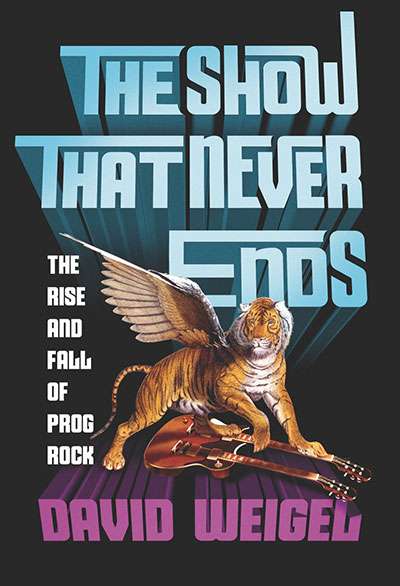The Show That Never Ends


In The Show That Never Ends: The Rise and Fall of Prog Rock, David Weigel, a Reason contributing editor and a political reporter for The Washington Post, surveys the history of "progressive rock," a genre not beholden to American blues but relying instead on warped call-backs to European folk and the futuristic sounds of moog synthesizers.
For a while, this beautiful and ambitious musical form enjoyed massive worldly success. But huge bands such as Yes, Jethro Tull, and Emerson, Lake and Palmer were too quickly scorned by rock's vox populi and intelligentsia alike, accused of untoward grandiosity and boring pretension. Weigel tells engaging tales from the rise and the fall of some of the genre's biggest players.
Culture mavens of the 1970s will be reminded of disco's similar swift tumble from empyrean heights to barroom punchline. In our petty cultural high school, both the nerdy grind of prog and the flighty party girl of disco are too quickly mocked.
That's a shame: Both genres shaped a pop decade, and each deserves more of the sort of respectful consideration Weigel gives to prog rock.
This article originally appeared in print under the headline "The Show That Never Ends."
Editor's Note: As of February 29, 2024, commenting privileges on reason.com posts are limited to Reason Plus subscribers. Past commenters are grandfathered in for a temporary period. Subscribe here to preserve your ability to comment. Your Reason Plus subscription also gives you an ad-free version of reason.com, along with full access to the digital edition and archives of Reason magazine. We request that comments be civil and on-topic. We do not moderate or assume any responsibility for comments, which are owned by the readers who post them. Comments do not represent the views of reason.com or Reason Foundation. We reserve the right to delete any comment and ban commenters for any reason at any time. Comments may only be edited within 5 minutes of posting. Report abuses.
Please to post comments


feature, not bug!
I see nothing much has changed. He earned his reputation the old-fashioned way, by earning it with the old-fashioned tripe.
those were not new, they were from the OG journolist expose
still, i just thought there was some harmony between criticism of the music and the author himself
Jethro Tull as Progressive Rock? Beggars me belief, aye, it does.
I really don't mind if you sit this one out.